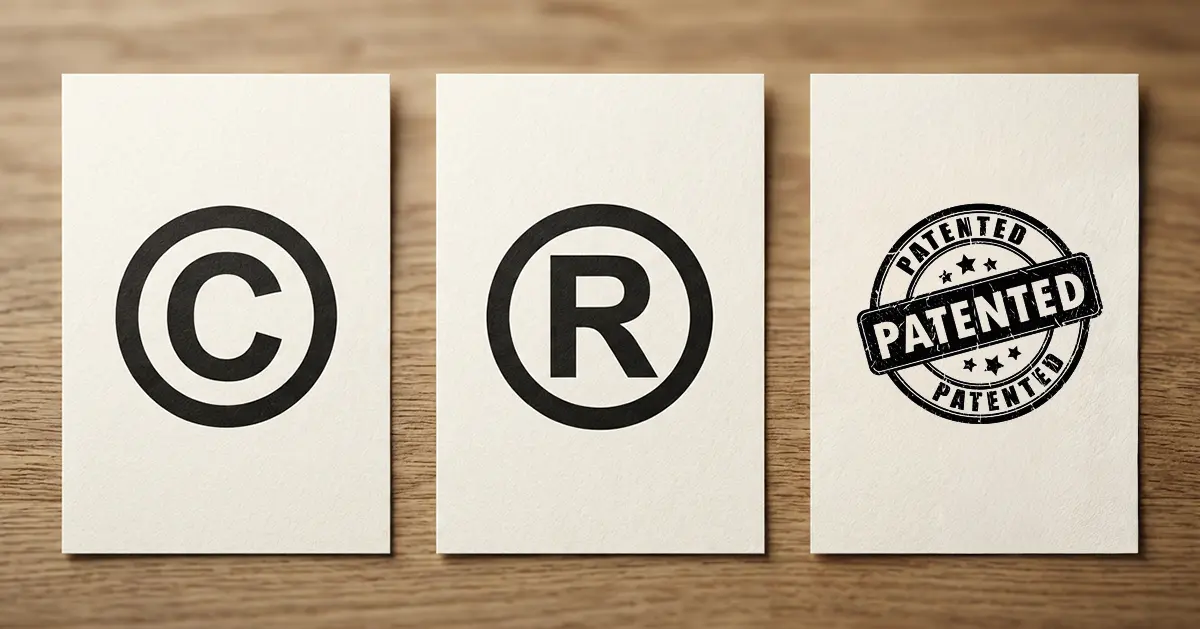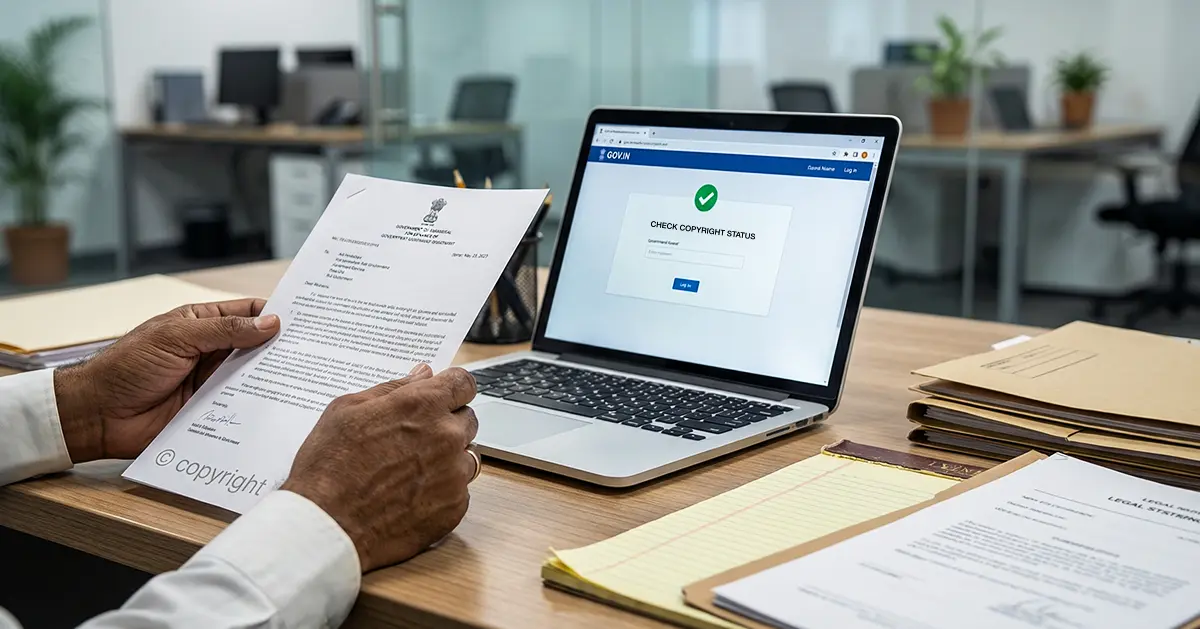
Introduction
When it comes to protecting your brainchild, whether it’s a revolutionary invention or a captivating piece of art, patent vs copyright are your primary Intellectual property (IP) protections. These legal frameworks serve different purposes and understanding their distinctions is crucial for creators and innovators alike.
The world of Intellectual property can be complex, but knowing which protection suits your creation can save you time, money, and potential legal headaches. Let’s explore the key differences between patent vs copyright and how they apply to various types of creative and innovative work.
What is a Patent?
A patent is a powerful form of Intellectual property that grants inventors exclusive rights to their inventions for a limited period. Under IP laws, a patent protects inventions that are novel, useful, and non-obvious.
Key Features of a Patent:
- Subject Matter: Covers inventions, machines, processes, and chemical compositions
- Protection: Grants the inventor exclusive rights to manufacture, use, and sell the invention
- Duration: Typically lasts for 20 years from the filing date
- Requirements: Invention must be novel, useful, and non-obvious
The patent system is designed to encourage innovation by allowing inventors to benefit from their creations while eventually making the knowledge available to the public. This balance is a cornerstone of modern IP laws.
To know more benefits of a Patent, check our blog on Benefits Of Securing A Patent
What is Copyright?
Copyright protection is fundamentally different from patent protection. While a patent focuses on inventions and processes, copyright safeguards original creative expressions helps prevent unauthorized use, and ensures the creator maintains control over their creation.
Key Features of Copyright:
- Subject Matter: Covers original literary works, artistic creations, musical compositions, and more
- Protection: Provides the creator with exclusive rights to reproduce, distribute, and perform their work
- Duration: Generally lasts for the creator’s lifetime plus 60 years
- Requirements: Protection is automatic upon creation, though registration offers additional legal benefits
The copyright system ensures that creators maintain control over how their work is used, shared, and monetized, fostering a culture of creativity and artistic expression under IP laws.
Comparing Patent vs Copyright: Essential Differences
Understanding the distinctions between patent vs copyright is critical for anyone creating intellectual property. Knowing which protection applies helps ensure that the right legal measures are taken for your creation. Here are the fundamental differences:
1. Type of Protection
- Patent: Protects inventions, technologies, and innovative processes
- Copyright: Protects the expression of ideas in tangible form
2. Subject Matter
- Patent: Covers novel inventions like machines, devices, processes, or chemical compositions
- Copyright: Protects creative works such as literary, musical, or artistic works
3. Scope of Protection
- Patent: Offers protection to the functionality and technical aspects of the invention
- Copyright: Protects the expression of an idea but not the underlying idea itself
4. Rights Granted
- Patent: Grants exclusive rights to make, use, and sell the invention
- Copyright: Grants exclusive rights to reproduce, distribute, perform, and display the work
5. Duration of Protection
When comparing patent vs copyright, the duration of protection differs significantly:
- Patent: Protection typically lasts for 20 years from the filing date
- Copyright: Protection extends for the author’s lifetime plus 60 years in most jurisdictions
6. Requirements for Obtaining Protection
The process for securing patent vs copyright protection also varies considerably:
- Patent: Requires formal application and approval through a patent office
- Copyright: Protection is automatic upon creation, though registration provides legal advantages

How Patent and Copyright Relate to Other IP Protections
Beyond patent vs copyright, the Intellectual property landscape includes other important protections:
- Trademarks: Protect symbols, logos, and brand names that distinguish goods or services
- Trade Secrets: Protect confidential business information that provides a competitive advantage
Each of these IP laws serves a unique purpose, but together they form a comprehensive framework for protecting different aspects of creative and innovative work.
The Importance of Patent vs Copyright Protection
Both patent and copyright play vital roles in promoting innovation and creativity:
- Patent: Encourages technological advancement by offering inventors exclusive rights to their inventions
- Copyright: Protects the creative expression of authors, musicians, artists, and other creators
By providing legal distinctions and protections, both patent vs copyright systems enable creators to profit from their work and prevent unauthorized use or exploitation of their Intellectual property.
When to Choose Patent vs Copyright Protection
Deciding between patent vs copyright protection depends on what you’ve created:
- Choose a patent if you’ve developed a new invention, process, or technological solution
- Choose copyright if you’ve created artistic, literary, or musical works
In some cases, different aspects of your creation might benefit from both types of protection. For example, software might have functional elements protected by patent and code protected by copyright.
The Application Process: Patent vs Copyright
The processes for securing patent vs copyright protection differ significantly:
Patent Application Process:
- Conduct a thorough search to ensure novelty
- Prepare and file a detailed application with the patent office
- Undergo examination by patent examiners
- Respond to any objections or rejections
- Receive patent grant if approved
Copyright Registration Process:
- Create your original work (protection begins automatically)
- Prepare and submit a registration application
- Deposit copies of the work
- Receive a certificate of registration
Understanding these processes is crucial for safeguarding your Intellectual property under the relevant IP laws. For more detailed insights, explore the section on Copyright Registration.
Conclusion
Understanding the differences between patent vs copyright is crucial for anyone involved in creating or inventing. Patents protect technological inventions, while copyrights safeguard artistic and literary creations. Knowing these legal distinctions will help you determine which type of Intellectual property protection is right for your work.
Whether you’re developing groundbreaking technology or creating inspiring art, the right IP laws can help you protect your innovations and creative expressions. By choosing the appropriate protection between patent vs copyright, you can secure your intellectual assets and maximize their value.
Need help securing your Intellectual property? Contact RegisterKaro today for expert guidance on copyright or patent registration and protecting your creations!
Frequently Asked Questions
A: A patent protects inventions or processes that are new and useful, whereas a copyright protects the expression of creative works like literature, music, and art.




